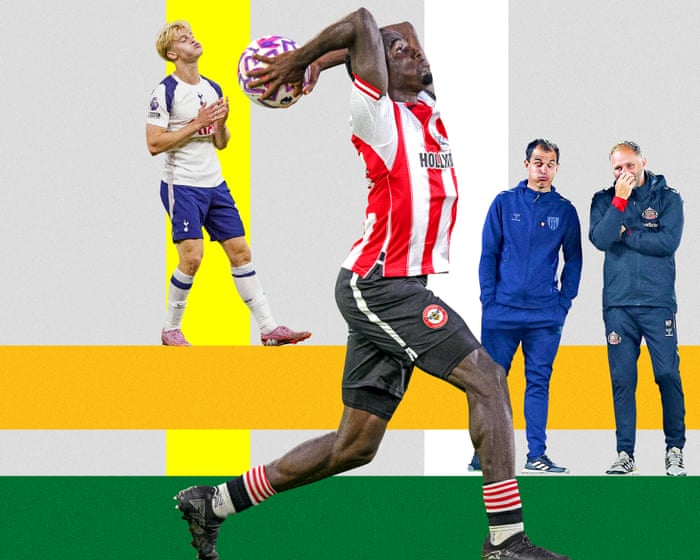When we look back on this phase of Seth Rogen’s career, The Studio will undoubtedly overshadow everything else—and for good reason. He co-created, co-wrote, and stars in it, persuaded Hollywood’s elite to join him, and directed with such soaring ambition that when it recently broke the record for most Emmys ever won by a comedy, no one batted an eye. The Studio is the series that has solidified Rogen’s reputation as a comedic visionary.
But if I may add a small aside: Platonic is pretty great, too.
Admittedly, Platonic will likely be remembered as Rogen’s other show. It’s far less ambitious than The Studio, lacking dazzling single-take sequences or a parade of A-list cameos. It doesn’t aim to make grand statements about anything. But with its second season concluding, it’s time to acknowledge that, in terms of pure enjoyment, Platonic might just be his most delightful work.
For the uninitiated, Platonic is a sitcom about two friends, Will (Rogen) and Sylvia (Rose Byrne), navigating the complexities of a platonic opposite-sex friendship. There’s no romantic tension between them, though their partners sometimes question their motives. The real challenge is the co-dependency that’s developed over the years, which occasionally flares up and makes them act like moody teenagers when they’re together.
If that sounds low-stakes, that’s exactly the point. Once the premise is set (which takes about an episode and a half), Platonic becomes a vehicle for Rogen and Byrne to simply hang out and radiate charisma—and they are incredibly charismatic. Rogen plays a familiar version of himself: juvenile, unambitious, and stuck in arrested development, a role he’s always excelled at. But Rose Byrne is the true revelation.
When Byrne is on screen, it’s hard to look away. As the more mature half of the duo—married with kids, unlike Rogen—you’d expect her to be the straight woman, but instead, she delivers a masterclass in exaggerated reactions. Her face cycles through a range of micro-expressions in every scene, always landing on the least expected choice. Her timing is razor-sharp, and she possesses the physical presence of a silent film star. Watching her in something like 28 Weeks Later feels dull by comparison; seeing her outshine top-tier comedic talent in Platonic makes you wish she’d always done comedy.
This is especially true in the current season. While it’s a bit more fragmented than the first—a storyline about Rogen’s new fiancée fizzles out and gives way to more conventional sitcom plots—Rogen and, above all, Byrne sell it brilliantly. You just want to spend more time with them.
In an ideal world, Platonic would run for years and be as beloved as Friends. But that’s unlikely. By all accounts, The Studio is not only the bigger show but also the project that demands the most from Rogen. As it grows, there will be less room in his life for Platonic. And given how TV tends to evolve, the longer Platonic stays on air, the greater the temptation to inject a Ross-and-Rachel-style “will they, won’t they” dynamic.
That would be a mistake. The tension in Platonic comes from the suspicions of those around Rogen and Byrne, and their theories about a romantic connection that isn’t there.The first season focused on Byrne’s husband feeling insecure about their friendship, and the best parts of the second season mirror that from the perspective of Rogen’s fiancée. Yet Rogen and Byrne remain blissfully unaware in their own bubble. The moment there’s even a hint of romance between them, the show would be ruined. Platonic isn’t a “will they, won’t they” story—it’s a “please don’t.”
If Platonic were to end now, there are plenty of other shows to fill the void. It fits neatly into Apple’s lineup of easygoing comedies about kind people being kind to one another. Ted Lasso has a similar vibe, as do Shrinking and Stick. But Platonic is too edgy and unpredictable to be lumped in with them. Despite their chemistry, the two leads are sharp and often self-destructive—one episode revolves entirely around Byrne trying to parent while high on ketamine—which sets it a step above the rest.
For now, though, everyone is talking about The Studio. And that makes sense. As a television production, The Studio is more impressive than Platonic. But Platonic is far easier to love. Let’s hope there’s still room for both of them.
Platonic is available on Apple TV+, with the finale airing on October 1st.
Frequently Asked Questions
Of course Here is a list of FAQs about the sitcom Platonic framed around the idea that its a uniquely endearing and underrated show
General Beginner Questions
Q What is Platonic about
A Its a comedy about two former best friends Sylvia and Will who reconnect in their mid40s after a long rift The show follows them as they navigate their completely platonic friendship while their own personal lives are in upheaval
Q Who stars in it
A It stars Seth Rogen as Will and Rose Byrne as Sylvia Their reallife chemistry is a huge part of what makes the show so great
Q Where can I watch Platonic
A You can stream all episodes on Apple TV
Q Is it a new show How many seasons are there
A The first season premiered in 2023 As of now there is only one season but it tells a complete and satisfying story
Q Why do people keep comparing it to Friends
A People compare it to Friends because it has that same core focus on the chemistry and hilarious dynamics between a tightknit group However it explores adult friendship with more maturity and realism
Deeper Dive Thematic Questions
Q What makes Platonic so endearing compared to other comedies
A Its endearing quality comes from its heart and realism Its not just about jokes its about two people genuinely supporting each other through career changes parenting struggles and personal doubts It feels authentic
Q The title is Platonic but is there any romantic tension
A This is the shows central genius While there are moments that might make you wonder the show steadfastly remains about the pure deep and sometimes chaotic bond of friendship without crossing into romance It proves a nonromantic relationship can be just as compelling
Q Is it just a silly comedy or does it have deeper themes
A It has significant depth It thoughtfully explores themes like midlife crises the challenge of redefining yourself after kids the nostalgia of youth and why adult friendships are so hard to maintain but so vital



